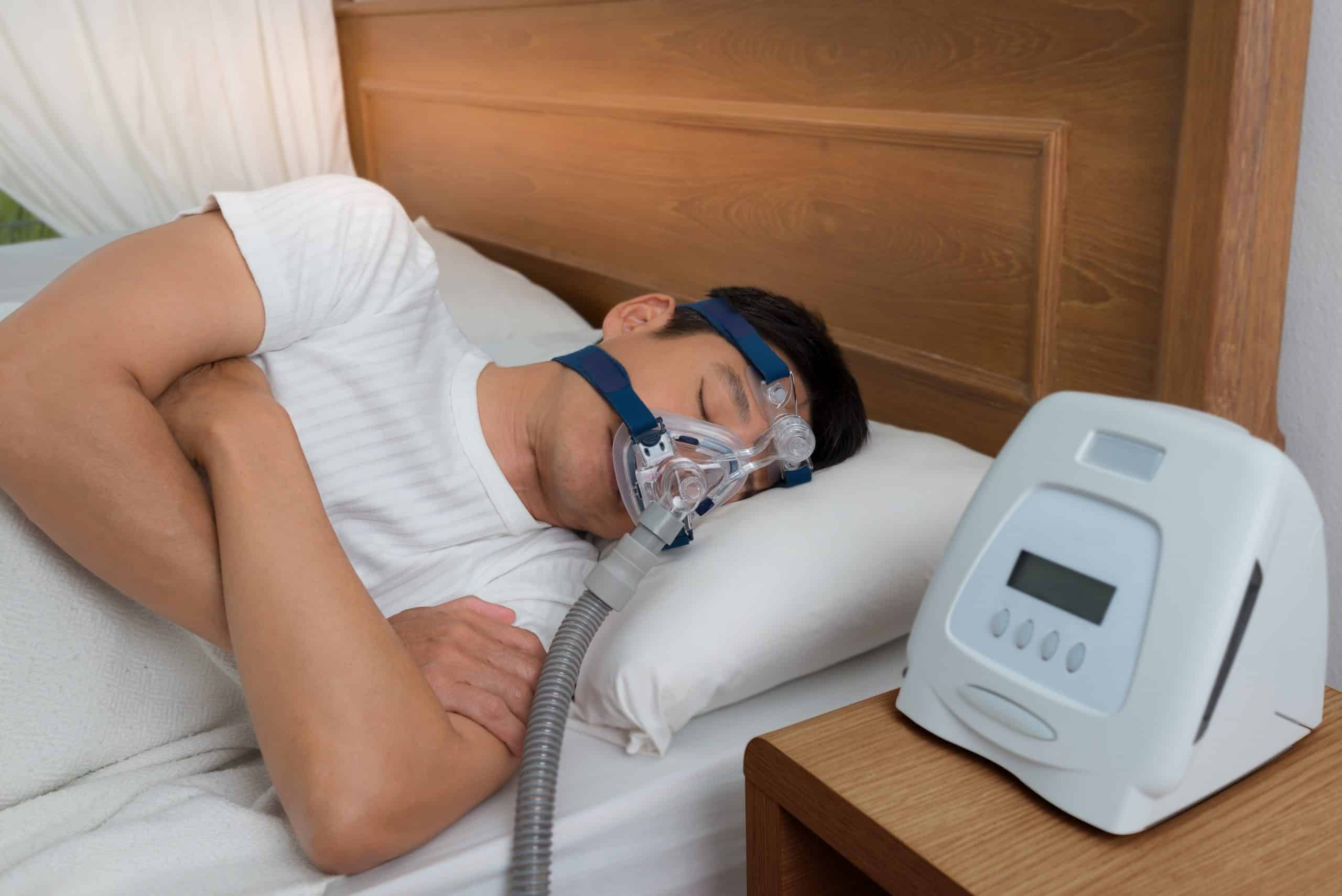Top 5 Secondary Conditions to Tinnitus – The Definitive Guide
Hi Veterans, Brian Reese here from VA Claims Insider, and today, I’m revealing and explaining the Top 5 Secondary Conditions to Tinnitus for VA disability benefits and secondary service connection.
This is the ultimate guide for veterans searching for secondary conditions to Tinnitus!
According to the Veterans Benefits Administration, Tinnitus, aka “Ringing in the Ear Syndrome,” is the #1 most claimed VA disability with 1,971,201 disabled veterans with a service-connected Tinnitus rating of 10%.
While Tinnitus is only rated at 10%, making it a low-value VA claim, did you know there are 5 high-value VA disability claims (rated at 30% or above) that can be medically linked to Tinnitus?
In our experience, many veteran service officers, attorneys, claims agents, and veterans don’t even realize they qualify for a variety of additional VA disability benefits due to their current service-connected Tinnitus condition.
Why?
Because they aren’t medical experts (nor should they be), and yet, VA disability claims depend almost entirely upon MEDICAL EVIDENCE!
Tinnitus can have significant debilitating effects on veterans, often leading to a variety of other disabling conditions in veterans such as headaches, insomnia, anxiety, depression, chronic pain syndrome, and sleep apnea, among others.
Okay, it’s time to jump into the main disability conditions causally linked to be proximately due to, or aggravated by, service-connected Tinnitus.
How to Establish Service Connection Secondary to Tinnitus
In accordance with 38 CFR § 3.310 disabilities that are proximately due to, or aggravated by, service-connected disease or injury, a current disability condition, which is proximately due to or the result of a service-connected disease or injury shall be service connected.
Service connection on a secondary basis requires a showing of causation.
A showing of causation requires that the secondary disability claim be shown to be “proximately due to” or “aggravated by” another service-connected disability.
There are three evidentiary elements that must be satisfied for secondary conditions to Tinnitus to prove service connection under the law:
- A medical diagnosis of the secondary disability condition you’re attempting to link to Tinnitus AND
- A current service-connected primary disability (e.g., your current VA Tinnitus rating) AND
- Medical nexus evidence establishing a connection between the service-connected Tinnitus and the current disability you’re trying to connect (e.g., Migraines, Anxiety, Depression, Somatic Symptom Disorder, Sleep Apnea)
The first part can be satisfied with any existing medical evidence in service treatment records, VA medical records, or any private medical records.
The second part can be satisfied with a veteran’s existing service-connected disability rated at 0 percent or higher, which in this case, is Tinnitus.
The third part, and often the missing link needed to establish secondary service connection, can be satisfied with a credible medical nexus letter (Independent Medical Opinion) from a qualified medical provider.
>> Wondering how to find doctors who write credible medical nexus letters for veterans?
Did you know there are 5 primary high-value VA disability conditions that can be causally linked to your current VA Tinnitus claim?
Truth bomb here veterans…you could be missing out on thousands of dollars of tax-free disability benefits you deserve by law, and not even realize that you’re current VA disability might be due to your Tinnitus.
Need an Independent Medical Opinion (IMO) to help establish secondary service connection?
Click HERE now to join VA Claims Insider Elite, our premier education-based membership program, which also gets you discounted access to independent medical providers in our referral network for medical examinations, VA disability evaluations, and Medical Nexus Letters for a wide range of conditions!
List of Top 5 Secondary Conditions to Tinnitus
- #1: Migraine Headaches secondary to Tinnitus
- #2: Anxiety secondary to Tinnitus
- #3: Depression secondary to Tinnitus
- #4: Somatic Symptom Disorder secondary to Tinnitus
- #5: Sleep Apnea secondary to Tinnitus
Migraines Secondary to Tinnitus

Medical research suggests a connection between Headaches and Tinnitus, and the symptoms go hand in hand with many types of headaches, including migraines and hypertension. Recent results show 27% of Tinnitus sufferers also suffer from headaches.
Migraine headaches is one of the most common secondary conditions to Tinnitus.
Thus, there is some medical etiology to suggest that Migraines, and many different types of Headaches, can be proximately due to or aggravated by Tinnitus.
>> Click HERE to read my Top 6 Tips for Your VA Claim for Migraines.
You’ll likely need a medical nexus letter from an independent medical professional to establish service connection for headaches secondary to Tinnitus.
Speaking of headaches, did you know there are more than 150 different types of headaches eligible for VA disability compensation benefits under the law?
While the Schedule for Rating Disabilities only lists “Migraines,” ANY type of headache can be service connected and compensated under the law if the veteran has current symptoms of headaches that interfere with work, life, and social functioning.
CFR 38, Part 4, the Schedule for Rating Disabilities, lists Migraines under code 8100.
The Migraine Headaches VA rating scale in 2020 consists of four possible ratings: 0%, 10%, 30%, and 50%.
The symptoms become markedly more severe between at the 30% and 50% rating levels, as evidenced by the rating criteria below:
| Migraines Secondary to Tinnitus VA Rating Scale: | VA Rating |
| Migraines with very frequent completely prostrating and prolonged attacks productive of severe economic inadaptability | 50% |
| Migraines with characteristic prostrating attacks occurring on an average once a month over last several months | 30% |
| Migraines with characteristic prostrating attacks averaging one in 2 months over last several months | 10% |
| Migraines with less frequent attacks | 0% |
Anxiety Secondary to Tinnitus

Plenty of medical research studies point to the prevalence of Anxiety and Depression mental disorders in veterans with Tinnitus.
For example, a 2015 joint study in coordination a VA Medical Center in California called, “The Correlation of the Tinnitus Handicap Inventory with Depression and Anxiety in Veterans with Tinnitus,” revealed that a shocking 79.1% of the 91 Tinnitus sufferers had a diagnosis of Anxiety, 59.3% had Depression, and 58.2% suffered from BOTH Anxiety and Depression.
VA claims for Anxiety secondary to Tinnitus can be rated at 0%, 10%, 30%, 50%, 70%, or 100%, depending upon the severity of your anxiety disorder, and how your anxiety symptoms affect your work, life, and social functioning.
For example, a veteran may only have a 10% rating for Tinnitus but could possibly receive a 70% rating (lower or higher rating possible as well) for Anxiety due to the Tinnitus.
Depression Secondary to Tinnitus

Medical research clearly points to the prevalence of Depression in veterans suffering from Tinnitus.
For example, the same 2015 joint study mentioned above, and in coordination a VA Medical Center in California called, “The Correlation of the Tinnitus Handicap Inventory with Depression and Anxiety in Veterans with Tinnitus,” revealed that a shocking 79.1% of the 91 Tinnitus sufferers had a diagnosis of Anxiety, 59.3% had Depression, and 58.2% suffered from BOTH Anxiety and Depression.
The Mayo Clinic explains that Tinnitus can significantly affect quality of life, and may lead to other conditions such as:
- Fatigue
- Stress
- Sleep problems
- Trouble concentrating
- Memory problems
- Depression
- Anxiety and irritability
Depression secondary to Tinnitus can be rated at 0%, 10%, 30%, 50%, 70%, or 100%, depending upon the severity of your Depression, and how your mental health symptoms affect your work, life, and social functioning.
For example, a veteran may have a 10% rating for Tinnitus, but could possibly receive a 70% rating for Depression due to the Tinnitus.
Somatic Symptom Disorder Secondary to Tinnitus

Somatic Symptom Disorder (DSM-5), a mental disorder previously called Chronic Pain Syndrome under DSM-4, is described by The Mayo Clinic as an “extreme focus on physical symptoms, such as pain or fatigue or Tinnitus that causes major emotional distress and problems functioning.”
While Tinnitus is often quite subjective in nature, if a veteran has an extreme focus on the physical symptoms of his/her constant ringing in the ears, it can cause significant occupational and social impairment.
VA claims for Somatic Symptom Disorder (SSD) secondary to Tinnitus can be rated at 0%, 10%, 30%, 50%, 70%, or 100%, depending upon the severity of your somatoform disorder, and how the symptoms affect your work, life, and social functioning.
While a veteran may have a 10% rating for Tinnitus, he/she may receive a 70% or 100% rating for Somatic Symptom Disorder secondary to Tinnitus.
Sleep Apnea Secondary to Tinnitus

Sleep disturbance is a common and frequent complaint reported by those with Tinnitus, especially in U.S military veterans.
It is often joked by veterans that “I finally got 8 hours of quality sleep … it only took me 4 days.”
While insomnia doesn’t necessary mean you have Sleep Apnea, it is possible, and I recommend veterans get a sleep study to confirm.
In fact, veterans are a shocking four times (4x) as likely to have Sleep Apnea compared to the general population.
Sleep Apnea can be rated secondary to Tinnitus, at 0%, 30%, 50%, or 100%.
One medical research study assessed the reported prevalence and severity of sleep disturbance in chronic tinnitus patients.
The Patients were military personnel without major psychiatric disturbance and their Tinnitus was associated with noise-induced permanent hearing loss (NIHL).
Mini Sleep Questionnaire (MSQ) scores for sleep disturbance were found to be higher than those of normal controls in 77% of the patients.
Highest MSQ scores in Tinnitus patients with a sleep complaint were for delayed sleep, morning awakenings, mid-sleep awakenings, morning fatigue, and chronic fatigue.
Sleep Apnea secondary to Tinnitus is rated under 38 CFR § 4.97, Diagnostic Code 6847 – Sleep Apnea Syndromes (Obstructive, Central, and Mixed).
Veterans are assigned a 0%, 30%, 50%, or 100 VA rating for Sleep Apnea depending on the severity of their sleep disorder.
The rating criteria for Sleep Apnea in 2020 is as follows:
| 6847, Sleep Apnea Syndromes (Obstructive, Central, Mixed): | VA Rating |
| Chronic respiratory failure with carbon dioxide retention or cor pulmonale, or requires tracheostomy | 100% |
| Requires use of breathing assistance device such as continuous airway pressure (CPAP) machine | 50% |
| Persistent daytime hypersomnolence | 30% |
| Asymptomatic but with documented sleep disorder breathing | 0% |
For example, a veteran may have a 10% VA rating for Tinnitus but could be rated 50% for Obstructive Sleep Apnea secondary to Tinnitus, if the veteran requires the use of a CPAP machine.
About the Author
Brian Reese is a VA disability expert, author, and founder of VA Claims Insider – “The Most Trusted Name in Education-Based Resources for Veterans.”
Learn more >> About VA Claims Insider HERE. <<
Brian’s frustration with the 8-step VA disability claims process led him to create “VA Claims Insider,” which provides disabled veterans with tips, strategies, and lessons learned to win their VA disability compensation claim in less time.

He is also the CEO of Military Disability Made Easy, which is the world’s largest free searchable database for all things related to DoD disability and VA disability, and has served more than 6,000,000 military members and veterans since its founding in 2013.
Veterans can download one of his #1 most downloaded FREE eBooks right here right now: “The Secret Guide to 833 Ratable VA Disabilities” by clicking HERE now.
Brian is a former active duty Air Force officer with extensive experience leading hundreds of individuals and multi-functional teams in challenging international environments, including a combat tour to southern Afghanistan in 2011 in support of Operation ENDURING FREEDOM.
Brian is a Distinguished Graduate of Management from the United States Air Force Academy, Colorado Springs, CO and he holds an MBA from Oklahoma State University’s Spears School of Business, Stillwater, OK, where he was a National Honor Scholar (Top 1% of Graduate School class).
